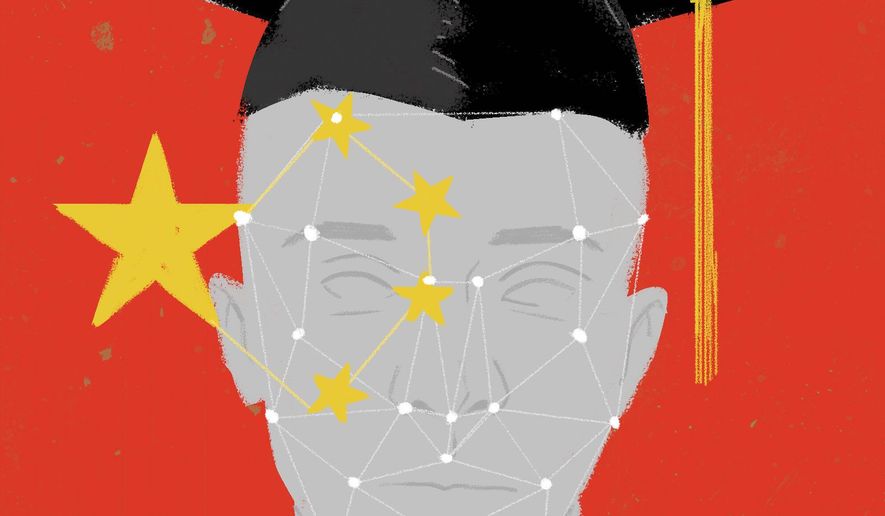OPINION:
American universities are morphing into Orwellian dystopias — tracking students’ movements, regulating faculty thought and actions to the totem of political correctness and molding young citizens to be comfortable with authoritarian state control.
Syracuse University, the University of North Carolina and others are installing wi-fi apps and bluetooth devices to monitor class attendance and visits to libraries, recreation centers, cafeterias and virtually every other campus location to create profiles that reward good learning habits and flag mental health issues.
The more self-important among my colleagues dream of students who never miss a single word of their wisdom and absorb it as gospel. By encouraging specific behavior — 100 percent attendance and extensive library time with email warnings for laziness and arbitrary adjustments to grades — faculty and administrators can use these tools to create Stepford Students.
For the typical 18-year-old, college should be a place between childhood and adult life without a net where they refine executive skills cultivated by parents and teachers during adolescence. Freshmen must manage competing demands of five or six courses, differing expectations of professors and academic vs. social lives.
By rewarding model student behavior from breakfast to bedtime, these electronic nannies and faculty deprive students of an important hardening process — the success and disappointment that go with good and bad choices. That’s what creates resilient adults able to cope with unreasonable bosses, tough career choices and stress in personal relationships when college counseling services are no longer an easy walk across campus.
It’s a short leap to thought control. If universities monitor students’ class attendance, study habits and participation in extra-curricular activities, they can easily learn everything they read, their associations and ideas they embrace. And sort those good from bad through the hard-left values that now dominate our universities.
It won’t be long before liberal administrators send out warnings for participation in groups that criticize progressive orthodoxy as a distraction from study time or as morally corrosive.
Several campuses at the University of California and elsewhere now require candidates for faculty positions to sign Diversity, Equity and Inclusion statements that profess commitments to specific social goals. Hiring rubrics are emerging that instruct search committees to grade candidates to DEI standards by assessing past activities.
These are nothing more than political litmus tests — hard-left activists welcome, conservatives need not apply.
It’s both reminiscent of McCarthy-era loyalty oaths that required faculty to swear they were not members of the Communist Party and reflective of pervasively-enforced campus codes that attack freedom of thought and speech.
Over the last several decades, broadly understood norms requiring faculty and students to abstain from intolerant speech or enabling bigotry have morphed into codes of behavior and disciplinary tribunals. Those investigate students and faculty for posing ideas other faculty, students and administrators decide are homophobic, racially charged or otherwise out of step with more enlightened, post Euro-centric thought.
Legitimate course content that challenges students to question liberal orthodoxy — or an innocent turn of phrase targeted by a disgruntled student — can land faculty in the dean’s office, cost them their jobs or bring down harsh punishment.
Try to get a decent raise, support for your research or fairness in course scheduling if you don’t toe the liberal line.
As a defensive mechanism, many instructors are removing material from syllabuses that challenges cultural norms, values and prejudices. A professor of film at CUNY has dropped “Birth of Nation” because it deals with racism and “Tootsie” because it brings up too many gender stereotypes.
Americans are rightly agitated by the likes of Google and Facebook tracking our web surfing, shopping and physical movements, and then trading data to advertisers, political operatives and even the veiled agents of foreign governments to peddle products, candidates and fake ideas.
The advent of web monitoring, smart cities and facial recognition will equip authorities with the ability to both identify and pre-empt terrorists and the simply deranged before they act. But those could also permit population control and social credit systems similar to those China’s President Xi has established in the western province of Xinjiang to pacify Muslims and is now planning to build out throughout China.
The systems of behavior and thought control emerging on American campuses should delight Beijing. Stepford Students who act and speak as automated liberal scholars will emerge into adult life quite comfortable with their ideas and activities tightly controlled.
• Peter Morici, @pmorici1, is an economist and business professor at the University of Maryland, and a national columnist.




Please read our comment policy before commenting.